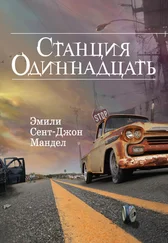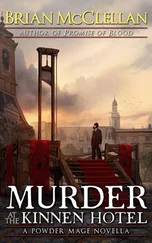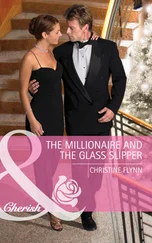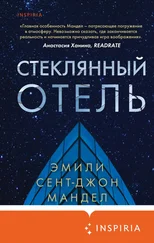It’s early in the morning, first light over the park, and they don’t recognize him. Why would they? Over the course of the night he’s given himself a buzz cut, he’s wearing dark glasses and a baseball hat, and—crucially—he’s dressed all in white, just like them, his gym bag slung over his shoulder. He opens the window and speaks with them. “Could I get a ride down to the street?” he asks. They refuse at first, naturally, but he has $5,000 in cash in the pied-à-terre and he gives it all to them, throws in two bottles of an exquisite Grand Cru Classé from his favorite château in Bordeaux and then Vincent’s diamond bracelet and earrings—she’s in the bedroom, still asleep—and persuades them: He just wants a ride down to the street. That’s all. It’ll be over in a few minutes. No one will know. It’s a lot of money and the best wine they’re ever going to drink.
Who are they? It doesn’t matter. A and B. Let’s say they’re young guys who don’t know any better, or they know better but let’s say they have kids to feed. Window washing, that can’t be a particularly well-paying job, unless ascending the glass curtain walls of high-rises is one of those jobs that’s so terrifying no one wants to do it? Anyway, who cares, either way it’s a lot of money, so let’s say they take it. Alkaitis climbs out into the cold, and on the slow descent to the sidewalk, A and B are quiet and respectful, he senses that they’re admiring his forethought in dressing like them—not exactly like them, window washers don’t wear dress shirts, but enough like them that from any distance it’s just three men in white on a suspended platform, an everyday sight in the glass city, and by now the rising sun is reflecting off the tower so no one can look directly at them anyway, because that’s how brilliant his plan is, they descend in the glare and he climbs out and thanks them and hails a taxi to the airport. A few hours later he’s on a flight to Dubai, first-class obviously, in one of those reclining seats that are actually more like a private pod with bed and television. In the counterlife, he reclines the seat flat over the Atlantic and falls into a blissful sleep.
In FCI Florence Medium 1 the lights go on, the alarm for the three a.m. count blaring, and he gets out of bed, neither awake nor asleep, putting on his slippers in an automatic movement, still halfway somewhere else, Hazelton stumbling out of bed across from him. In the counterlife, he is never arrested, let alone sentenced, let alone subject to head counts. (Guards yelling in the corridor—“get up get up get up ”—and then one stops in the doorway with his little clicker, and after a few minutes the count is over and it’s possible to go back to bed.) In the counterlife, he transfers all his money into the secret offshore accounts, out of the hands of the American government. By the time his daughter calls the FBI, he’s out of reach. Dubai has no extradition treaty with the United States.
He has enough money to live in Dubai indefinitely, in tranquility, in the cool interiors and the brutal heat. Hotel, or villa? Hotel. He’ll live in a hotel and order room service forever. Villas are a staffing headache. He’s had enough of staff.
—
“I’d like to ask about your daughter,” Julie Freeman says at their second meeting.
“I’m sorry,” he says, “but I’d prefer not to talk about her. I think Claire deserves her privacy.”
“Fair enough. In that case, I’d like to ask you about your wife.”
“Do you mean Suzanne, or Vincent?”
“I thought I’d start with Vincent. Does she visit you here?”
“No. Actually, I…” He isn’t sure it’s wise to continue, but who else can he ask? His only visitors are journalists. “Would you stop taking notes, please, just for a moment?”
She sets her pen on the table.
“This is embarrassing,” he says, “and I’d appreciate it if you’d keep this off the record, but do you know where she is?”
“I’ve been looking for her myself. I’d love to talk to her, but wherever she is, she’s keeping a low profile.”
—
Maybe the descent down the tower with the window washers is a little overdramatic. He could just as easily have kissed Vincent good night after the holiday party, told her he had to go get drinks with an investor and that she shouldn’t wait up for him; he could’ve sent her home in a car while he fled the country. No, he would have had to go back to Greenwich for his passport. Well, if he can rewrite history so that he fled the country, surely the passport isn’t an impediment. In the counterlife, maybe he’s the kind of person who keeps his passport on his person at all times. He kisses Vincent good night and hails a taxi to the airport.
In the counterlife, Claire visits him in Dubai. She is happy to see him. She disapproves of his actions, but they can laugh about it. Their conversations are effortless. In the counterlife, Claire isn’t the one who called the FBI.
—
Claire has never visited him in prison and will not take his calls.
—
He wrote Claire a letter his first month in prison, but she responded only with two pages of trial transcript, from the initial hearing where he had to keep saying guilty over and over again. He remembers standing there and repeating the word, nauseous, sweat trickling down his back. On the page it looks strange and fragmented, like bad poetry or a script.
THE COURT: How do you now plead to Count One of the information, guilty or not guilty?
THE DEFENDANT: Guilty.
THE COURT: Mr. Alkaitis, please speak up so I can hear you.
THE DEFENDANT: I’m sorry, Your Honor. I plead guilty.
THE COURT: How do you now plead to Count Two of the information, guilty or not guilty?
THE DEFENDANT: Guilty.
THE COURT: How do you now plead to Count Three of the information, guilty or not guilty?
THE DEFENDANT: Guilty.
THE COURT: How do you now plead to Count Four of the information, guilty or not guilty?
THE DEFENDANT: Guilty.
THE COURT: How do you now plead to Count Five of the information, guilty or not guilty?
THE DEFENDANT: Guilty.
THE COURT: How do you now plead to Count Six of the information, guilty or not guilty?
THE DEFENDANT: Guilty.
THE COURT: How do you now plead to Count Seven of the information, guilty or not guilty?
THE DEFENDANT: Guilty.
THE COURT: How do you now plead to Count Eight of the information, guilty or not guilty?
THE DEFENDANT: Guilty.
THE COURT: How do you now plead to Count Nine of the information, guilty or not guilty?
THE DEFENDANT: Guilty.
THE COURT: How do you now plead to Count Ten of the information, guilty or not guilty?
THE DEFENDANT: Guilty.
THE COURT: How do you now plead to Count Eleven of the information, guilty or not guilty?
THE DEFENDANT: Guilty.
THE COURT: How do you now plead to Count Twelve of the information, guilty or not guilty?
THE DEFENDANT: Guilty.
2008–2013
The Neptune Cumberland
Vincent left land on a bright blue day with clouds like popcorn, in August 2013. Her first glimpse of the Neptune Cumberland was at Port Newark. She was escorted to the ship by port security, where she had to wait by the gangway stairs for what seemed like a long time. She was nervous and excited. There were other people around, but they were out of sight, either high overhead in the cabs of cranes or driving trucks laden with containers. She’d known where she was going, she’d studied the coursework and read the books, but the scale of this world was still astonishing to her. The hull of the Neptune Cumberland was a sheer wall of steel. The cranes were the size of Manhattan towers. She knew that the containers could weigh as much as sixty-seven thousand pounds, but the cranes plucked them from the flatbed trucks as if they were nothing, and there was an improbable grace in that illusion of weightlessness. She stood in a landscape of unadulterated industry and enormous machines, a port where humans had no place, feeling smaller and smaller, until her escorts appeared, two men descending the white steel steps from the deck. It took them a long time to reach her. They introduced themselves as they stepped down onto land: Geoffrey Bell and Felix Mendoza, third mate and steward, her colleague and her boss respectively.
Читать дальше












